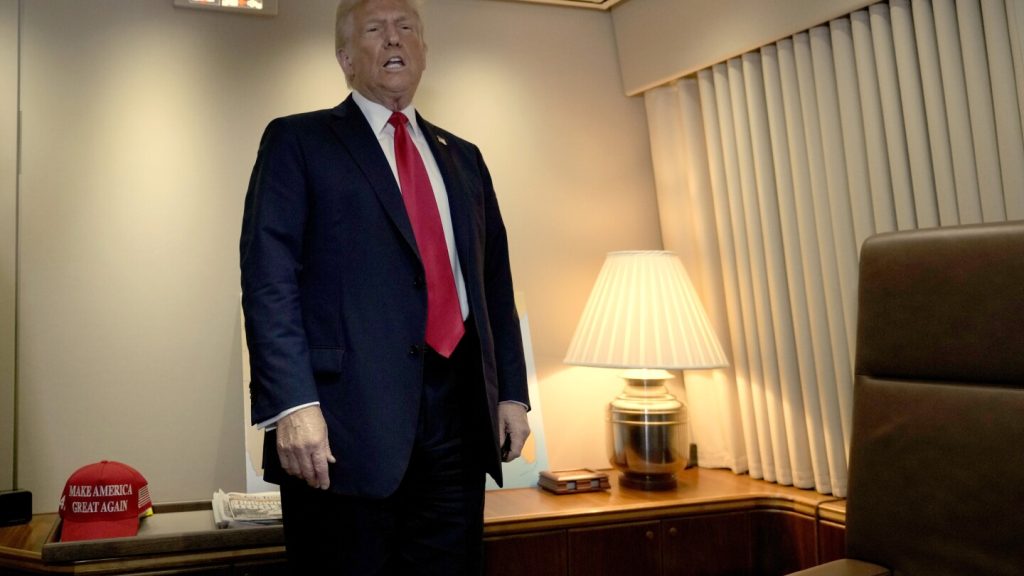A Federal Judge Orders the Trump Administration to Unfreeze Federal Spending
Introduction: A Judicial Rebuke of Executive Overreach
In a significant development, a federal judge has ruled that the Trump administration failed to fully comply with a court order to unfreeze federal spending, directing the White House to release billions of dollars in funding. U.S. District Court Judge John McConnell, based in Rhode Island, issued a temporary restraining order (TRO) on January 31, halting the administration’s plans to impose a sweeping freeze on federal funds. McConnell’s ruling marked the first time a judge has determined that the Trump administration disobeyed a court order. Despite the initial ruling, federal money allocated for critical programs such as early childhood education, pollution reduction, and HIV prevention research remained inaccessible, prompting McConnell to take further action. The Trump administration swiftly appealed the ruling, setting the stage for a legal showdown.
The Trump Administration’s Appeal and the Ongoing Legal Battle
The Trump administration wasted little time in appealing Judge McConnell’s ruling, taking the case to the 1st Circuit Court of Appeals. The administration argued that it had made good-faith efforts to comply with the judge’s order, which was issued in response to a lawsuit filed by nearly two dozen states. However, the Justice Department contended that McConnell’s ruling only applied to a specific spending freeze outlined in a late January memo, which has since been rescinded. The administration’s lawyers claimed that the ruling does not extend to other spending pauses outlined in different memos, including funds tied to President Joe Biden’s signature climate, health care, and tax package. McConnell, however, made it clear that his order was far-reaching, blocking the administration from implementing a wide range of funding cuts.
The Impact on Critical Programs and the Communities They Serve
Judge McConnell’s ruling highlighted the significant harm caused by the administration’s sweeping funding freeze. The freeze has left critical programs grappling with uncertainty and financial strain. For instance, a nonprofit group in Oregon that provides services and support to immigrants working to become U.S. citizens received a letter freezing their funding on February 4. The group, which has helped over 4,000 immigrants from 80 countries since 2010, has yet to receive any indication that the funds will be reinstated. Frank Jay So, the executive director of the Ecumenical Ministries of Oregon, expressed frustration over the situation, stating that the group would proceed with planned workshops without federal funds if necessary. However, he warned that their savings would eventually run out, putting their vital work at risk. These types of pauses in funding, McConnell wrote, violate the plain text of his temporary restraining order and have caused irreparable harm to a vast portion of the country.
The Trump Administration’s Defense and the Broader Context
The Trump administration has defended its actions, arguing that the funding pause was necessary to align federal spending with the president’s agenda. White House press secretary has indicated that some spending halts would continue as part of a blitz of executive orders. These orders reflect Trump’s broader policy priorities, including increasing fossil fuel production, removing protections for transgender people, and ending diversity, equity, and inclusion efforts. The administration has framed its actions as a legitimate exercise of executive authority, but critics argue that such sweeping changes are unconstitutional and bypass the legislative process. The ongoing legal battle over federal spending is just one front in a larger struggle between the Trump administration and the judiciary, which has increasingly served as a check on executive power.
Public Reaction and the Role of State Attorneys General
The ruling has drawn widespread support from state attorneys general and advocacy groups, who have praised Judge McConnell for upholding the rule of law. Rhode Island Attorney General Peter Neronha, a plaintiff in the lawsuit, commended the ruling, stating, “This is a country of laws. We expect the administration to follow the law. We will not hesitate to go back to court if they don’t comply.” Similarly, nonprofit organizations affected by the funding freeze have spoken out about the harm caused by the administration’s actions. Frank Jay So of the Ecumenical Ministries of Oregon described the situation as “sooooo frustrating!” and warned that the haphazard funding pauses would have long-lasting consequences for the communities they serve. These reactions underscore the human cost of the administration’s policies and the importance of judicial oversight.
The Broader Implications and the Road Ahead
The ruling carries significant implications for the balance of power in the U.S. government and the role of the judiciary in checking executive overreach. It also highlights the challenges faced by organizations and individuals who rely on federal funding to provide essential services. As the legal battle unfolds, all eyes will be on the 1st Circuit Court of Appeals, which will decide whether to uphold or overturn Judge McConnell’s ruling. If McConnell’s order is upheld, it could set a precedent for how future administrations approach federal spending and the limits of executive authority. For now, the affected organizations continue to operate in a state of uncertainty, hoping that the courts will ultimately ensure that the rule of law prevails and that critical programs receive the funding they need to continue their vital work.












